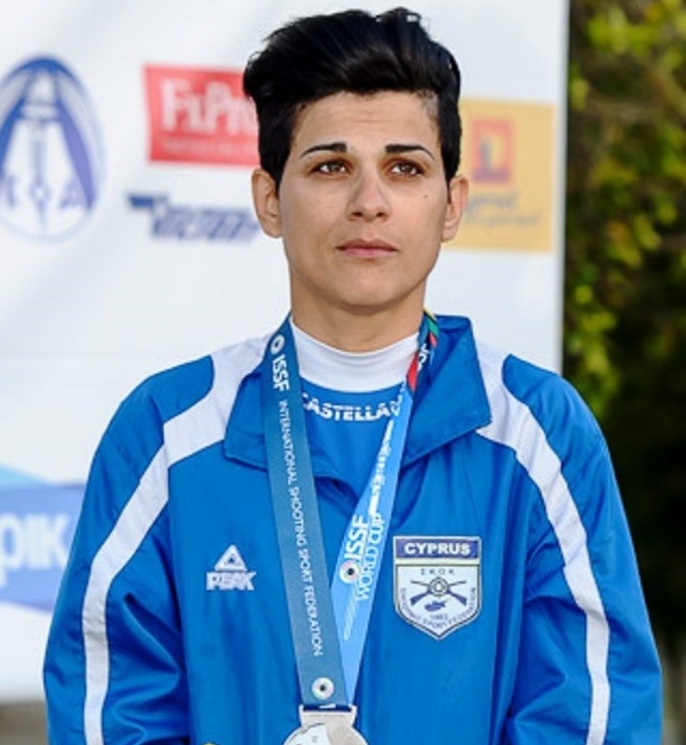Cyprus society should take a good look at itself to come to terms with the fact it could be harbouring a sexual harassment culture as cases of sex abuse in sports surface.
All allegations involve a male official reported to police by Olympic shooter Andri Eleftheriou, for sexually harassing her at a young age.
Eleftheriou, 36, had spoken about her ordeal to media but did not file an official complaint until this week after meeting Justice Minister Emily Yiolitis, who encouraged her to give police officers the name of her abuser.
Following her meeting with Eleftheriou, Yiolitis congratulated the athlete for coming forward, asserting that along with the state, she will personally support her throughout the process that will follow.
“Let this give others the impetus to speak out. To break the cycle of silence and to correct everything that feeds it,” Yiolitis said in a statement.
She called on all women who have endured violence to come forward “without fear”.
Eleftheriou did name her aggressor on Thursday, and now police are expected to investigate, talking to sports officials and the shooting federation.
Although Eleftheriou had spoken out about incidents of sexual harassment that took place when she was younger, as early as 2018, and more recently while interviewed by CyBC in December, her allegations were only taken seriously following an avalanche of sexual harassment claims in Greece by top athletes.
Given the turbulence created in Greece following claims of sexual abuse filed by Greek Olympic gold medallist Sofia Bekatorou, Cypriot authorities, including the Justice Minister, extended an invitation to hear Eleftheriou’s story.
After Eleftheriou testified about her abuse, several athletes of the shooting federation came forward with similar accusations.
In comments to the Financial Mirror, the Director of the Mediterranean Institute for Gender Studies, Susana Pavlou said the news of sexual harassment in sports did not surprise those following developments on violence against women.
“This is not something that is happening just in sports. It is happening in our workplaces, our homes, everywhere, we just don’t have enough data to draw a clear picture of how big the problem really is,” said Pavlou.
She added that an EU study on Fundamental Human Rights in 2014, revealed that 36% of women in Cyprus said they had endured some form of sexual harassment in their lives, since the age of 15.
“Compare that figure to the cases of abuse that were actually reported,” said Pavlou.
She said the authorities need to build an environment where women and victims of sexual abuse feel confident coming forward to report these incidents without being afraid.
Breaking the silence
“As a society, we must insist, with all good intentions, that victims of abuse should come forward and break their silence.
“However, breaking your silence in a society that lives in silence, covering up such cases, is not the easiest thing to do,” argued Pavlou.
“We live in a patriarchal society. We are no exception to the rest of the world. We need to come to terms with this and create the conditions for women and victims to feel safe in reporting their aggressors. However, these issues are usually swept under the carpet.”
Pavlou said that even when women do come out to report sexual abuse, they often feel abused again by victim-blaming practices.
“Why did she decide to report it now? is one of the questions asked by society when a woman reports and incident of sexual abuse”.
Pavlou argued that there is a culture of victim-blaming in Cyprus, which in turn feeds a rape culture.
“We all saw what happened with the stark case of the young Briton who reported a gang rape in Ayia Napa.”
“We hope that global campaigns like #metoo launched in the USA and has had its effect in Greece with people like the Olympic medallist coming forward have their effect on Cyprus too.
“We hope that Eleftheriou’s complaint prompts more women to come forward.”
“But for them to do so, the society, but first, the state has to provide a framework to encourage women to speak out.
“Cyprus Sports Organisation (KOA) needs to adopt a code of conduct and policies to handle such cases of abuse and promote zero tolerance for such incidents.”
Pavlou said such a code was drawn up in 2019 but has yet to be adopted.










